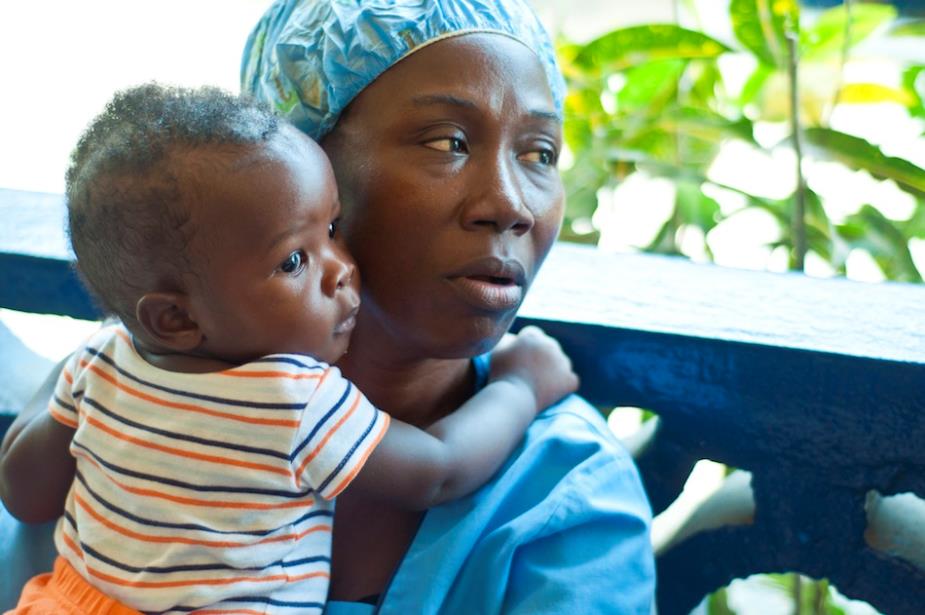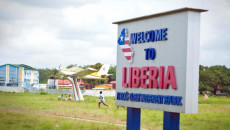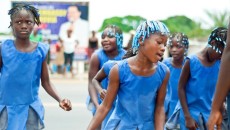As this week began with International Workers’ Day on May 1, it is only fitting that this edition of Beyond the Lens focuses on the laborers of Liberia. In the featured photo is a nurse at a clinic in Paynesville.
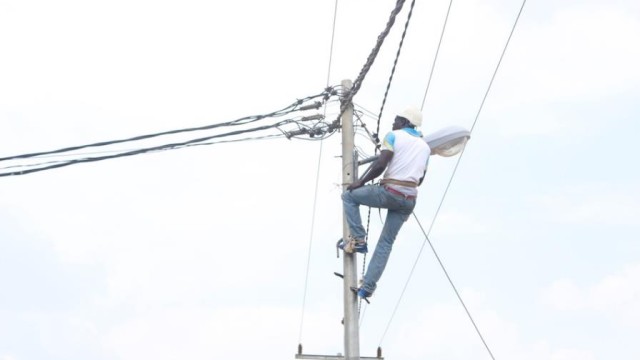
An employee of the Liberia Electricity Corporation ascends a light pole to do some maintenance work. Since the dedication of the Mount Coffee Hydropower Plant in December, the utility company has faced the need to connect more citizens to power to satisfy the surplus electricity being produced. Additionally, LEC recently announced that it has restored power to Zwedru in Grand Gedeh. The power comes from Cote d’Ivoire as part of the West Africa Power Pool Project.
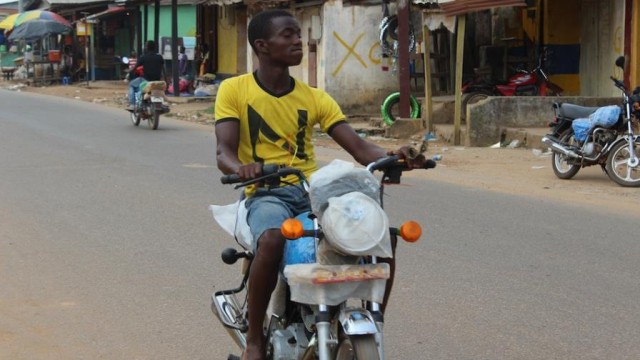
A pen-pen rider cruises by the streets of Ganta in search of passengers. In cities outside Monrovia, where intracity travel via taxis and buses are non-existent, commercial motorcyclists are a major means by which residents commute around town. According to the German development agency GIZ, the average commercial motorcyclist makes a daily profit of US$8.15.
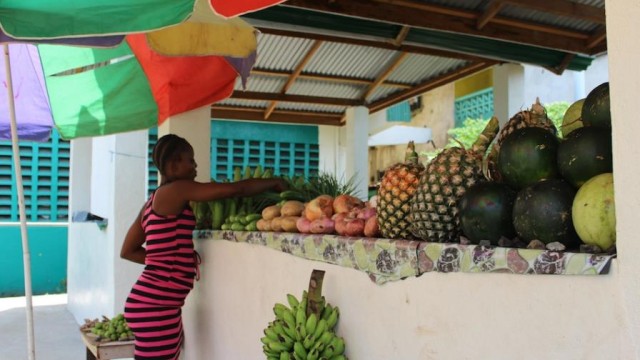
A market woman delicately places her goods on display to attract customers. While fruits are certainly sold in markets across the country, in metropolitan Monrovia – especially in Sinkor and Paynesville – there are several fruit stands strategically located in high traffic areas. The city of Paynesville said it constructed some of those stands throughout the city to empower local market women by providing them with a habitable place to sell their goods.
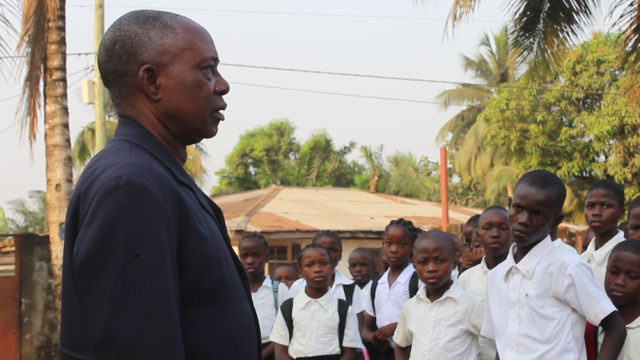
The principal of the Abdullah Euphemia Middle School speaks to his pupils at the morning assembly. Like many schools across the country, the school suffers from inadequate resources including a broken hand pump and insufficient seating for its students.
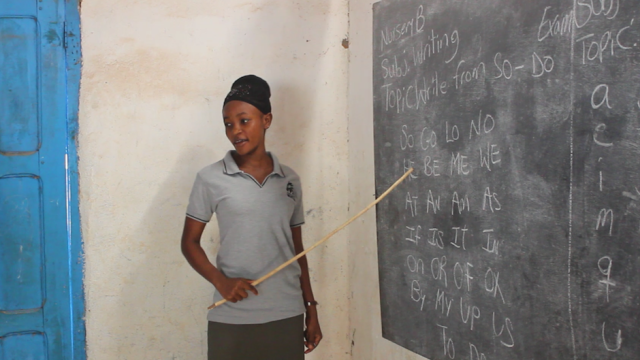
A kindergarten teacher recites ‘S-O, so, G-O, go’ with her students. Recitation and rote memorization is still a major tool for learning in the country, and that may be contributing to Liberia’s 43 percent adult literacy rate. Moreover, such means of learning does not build strong critical thinking skills.
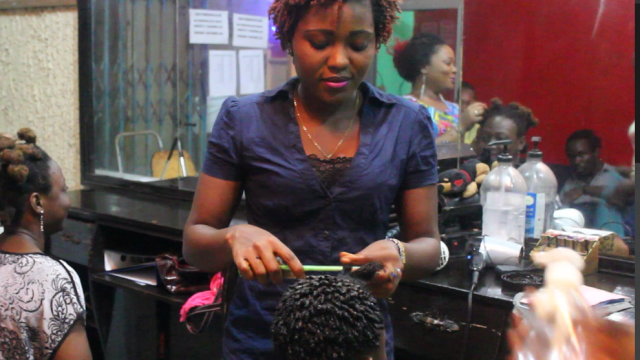
Hairdressers chat lively with customers while doing their hair. This salon in Central Monrovia focuses mostly on natural hairstyles and even produces a natural dreadlocked attachment to sell to clients who want to elongate their hair.
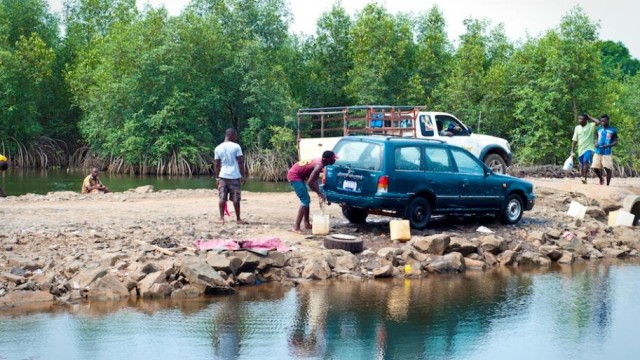
Car washers chase down cars to convince owners to give their ride a shine. Groups of car washers can often be seen near creeks or urban areas with free water supply. Here, a driver stands outside his car and waits while it is washed. Washers can charge L$180 (US$1.67) to wash both the interior and exterior of a vehicle.
All photos by Lloyd Massah
